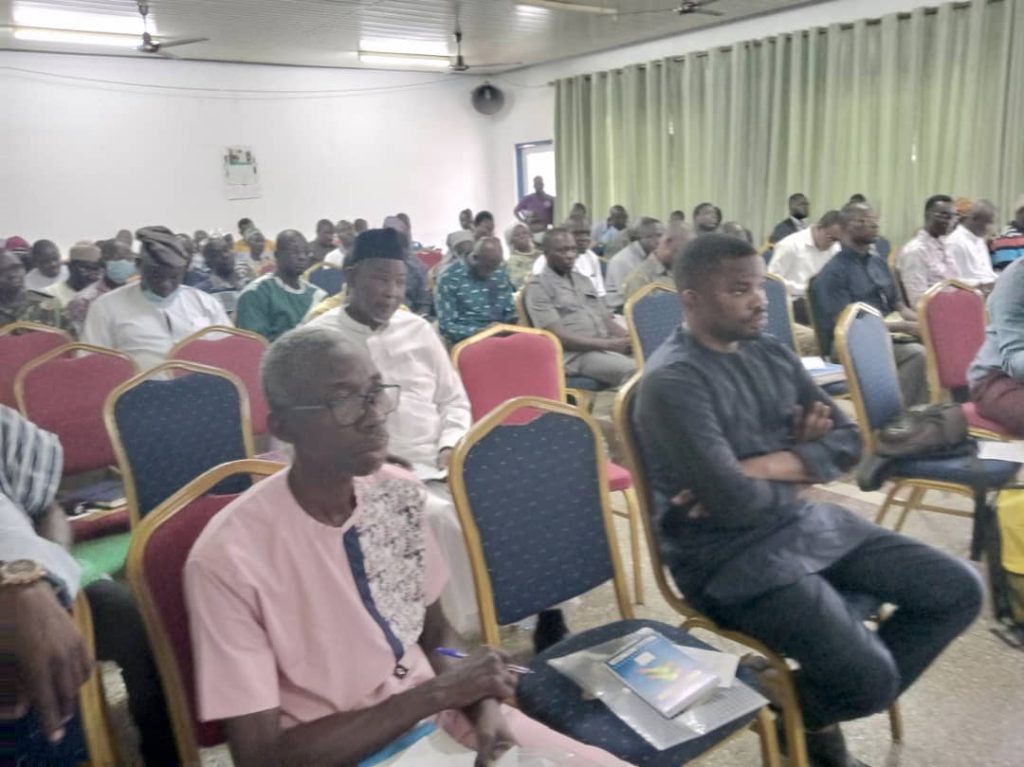By Bajin D. Pobia
Wa, March 02, GNA – Father Clement Kwasi Adjei, Director of Governance, Justice and Peace Directorate of the National Catholic Secretariat, has urged Ghanaians to take action to avert violent extremism
He said currently, Ghana was faced with some conflict challenges, which if not addressed, could escalate into a full-blown security crisis.
He said the issue at hand, which should be of concern for all, was the emerging and trending of conflict situations in various parts of Ghana today, and that was critical as it had the potential of affecting the prevailing peace and stability of the country.
“It is no secret that Ghana has been relatively peaceful as compared to many of our neighbouring West African countries. However, recent events have shown that we cannot be complacent,” he said.
Father Adjei raised these concerns at a day’s Regional Dialogue Session on trending conflict issues in the Upper West Region, which was on the theme: “Trending Conflicts in Ghana, Fertile Grounds for Violent extremism: A call for action.”
It was organised for 75 participants made up of policy makers and implementers, academia, religious leaders, traditional leaders, youth leaders, political parties, women groups, Civil Society Organisations, the Justice and Peace Commission, heads of government institutions and individuals.
They treated topics on understanding of the trending conflict issues and how they could serve as fertile grounds for violent extremism infiltration, an understanding on what the current gaps in addressing these trending conflict issues are, and an understanding of what needs to be done.
The forum formed part of the Sahel Peace Initiative, with the National Catholic Secretariat of Ghana Catholic Bishops Conference as implementers with funding support from the Catholic Relief Services (CRS).
In that regard, Father Adjei said the Church was following keenly the efforts of the government in fighting terrorism and violent extremism in the sub region and gave the assurance that the Catholic Church was ever ready to partner the government.
The overall goal of the project is for the Catholic Church in Ghana to take leadership in promoting peace and building a cohesive society to ensure that individuals living in Ghana experience greater levels of peace, social cohesion and resiliency.
He noted that the rise of violent extremism in the Sahel was a growing threat, which Ghana was not immune to that threat.
“We have seen examples of how they lured vulnerable people, especially the youth into their ranks by providing them with a sense of belonging, purpose and identity. We must not allow this to happen in our beloved country,” he advised.
Father Adjei said the five regions in Northern Ghana were at great risk of violent extremism as they border with Burkina Faso, a country highly affected by armed groups.
Some of the communities in Burkina Faso, Mali, and Niger were under direct attack by violent factions, who sought to aggravate and exploit community grievances and tension for their own gain.
He said the Bawku District bordering Burkina Faso and Togo and the Sisaala East Municipality, which is also bordering Nazinga Forest in Burkina Faso, had been experiencing increasing spillover of violent extremism related activities.
“These threats, coupled with weaker communal resilience tied to chieftaincy conflicts and illicit trafficking are key concerns and possible pull factors for Jihadists.
“We need to take immediate and decisive action to prevent the spread of violent extremism into Ghana and this requires a comprehensive and coordinated approach that addresses the root causes of conflicts and builds the resilience of communities to resist the lure of extremism groups”, he said.
Father Adjei suggested the promotion of inclusive and accountable governance, committed leaders who would fight corruption and promote transparency and accountability, prioritised the needs of the citizens and ensured that their voices were heard to help prevent violent extremism in Ghana.
He also advocated addressing the economic disparities, and creation of opportunities for all, investment in education, and job creation and entrepreneurship for the people regardless of their background or circumstances, the absence of which often fuel conflicts.
He called for the strengthening of social cohesion, promoting tolerance and respect for diversity, building bridges between different communities and promoting dialogue and understanding.
“We need to reject hate speech, and incitement to violence and instead, promote messages of peace, unity and cooperation,” he admonished.
Father Adjei urged traditional and religious leaders, civil society, women and community leaders, and youth groups to get involved in the promotion of a peaceful co-existence in Ghana.
Reverend Father John Kuupiel of the Wa Dioceses of the Catholic Church noted that war, conflicts and violence had never been a solution to any problem.

He noted that countries and communities that anticipated conflicts and solved them amicably grew faster in development.
“Therefore, conflicts should never be denied or swept under the carpet because countries or communities or families that sweep conflicts under the carpet or deny them are likely to die”, he said.
GNA